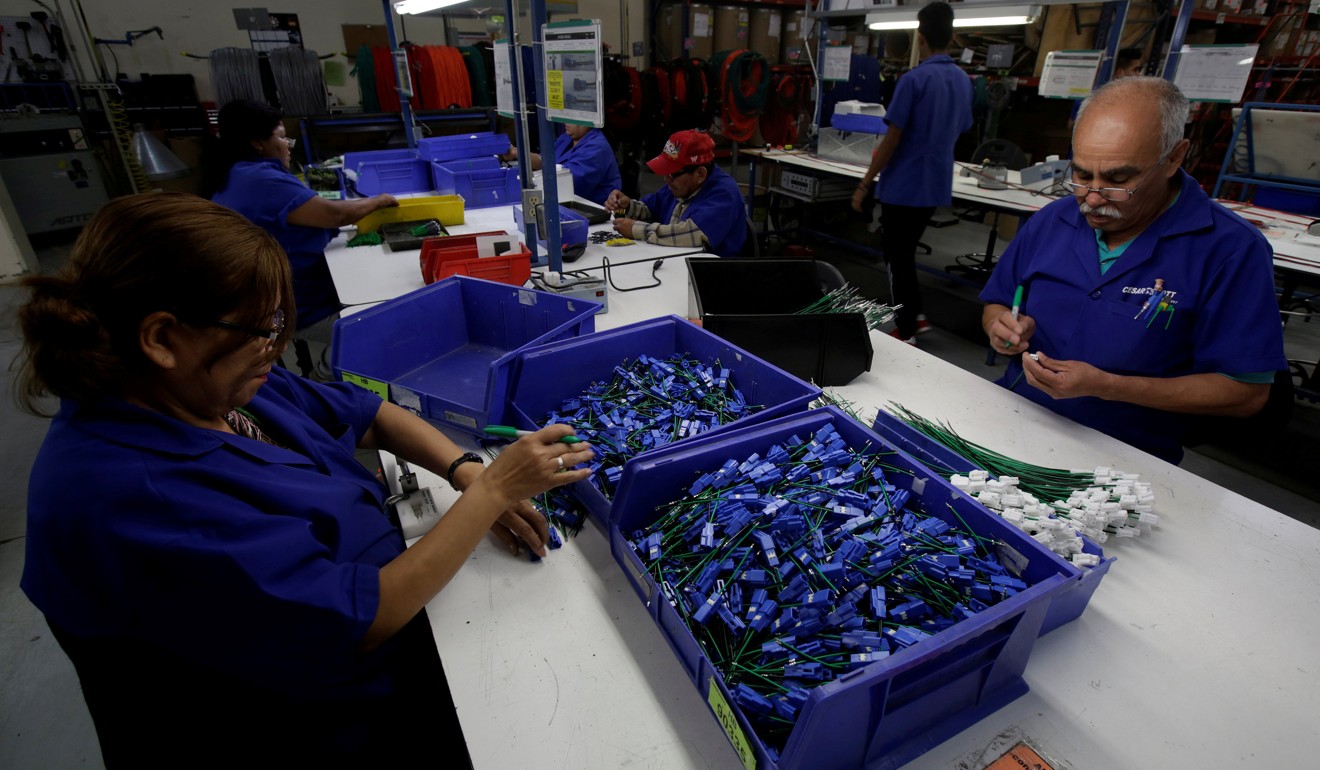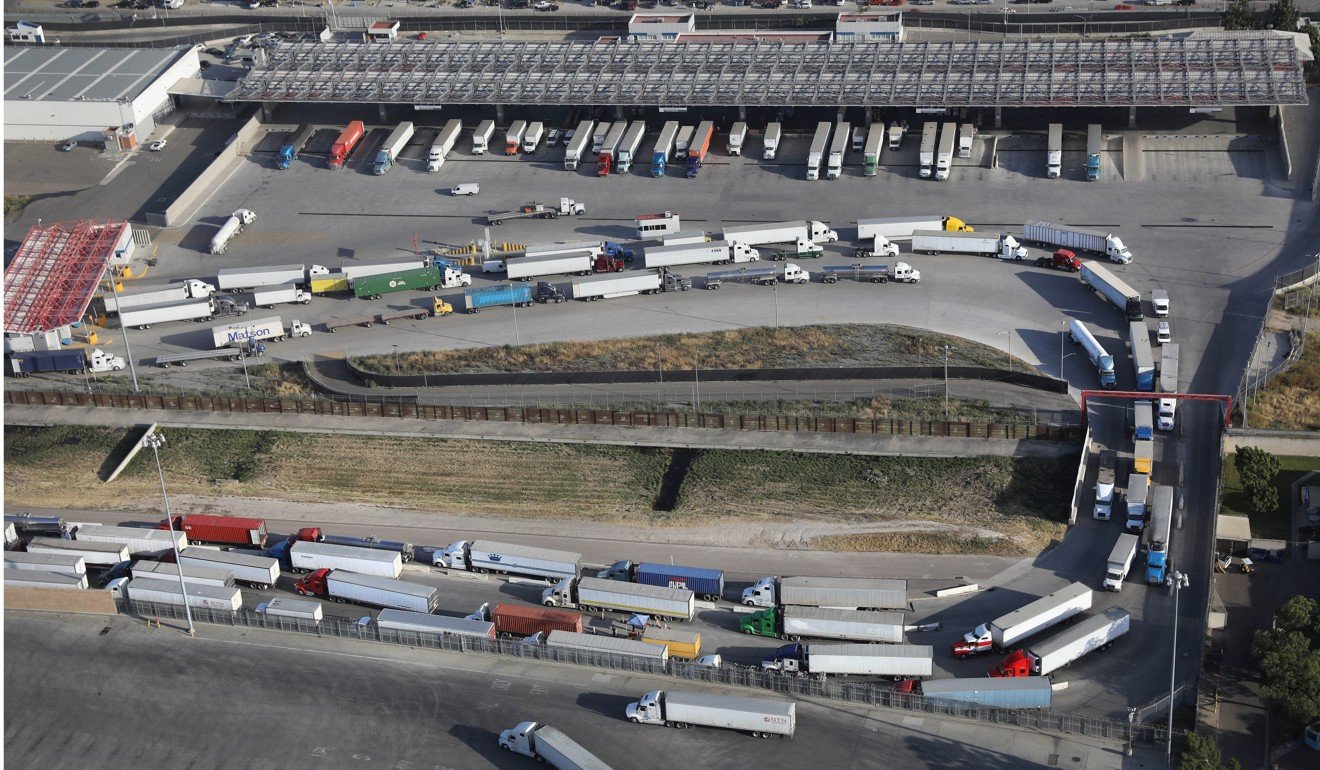What Asia should look out for in Donald Trump’s Nafta talks
Wendy Cutler says with their own trade deals with the US similarly under review, Asian economies are likely to pay great attention to the Nafta renegotiation to get a sense of the US president’s priorities and tactics

The Trump administration officially notified Congress on May 18 of its intent to renegotiate the North American Free Trade Agreement between Canada, Mexico and the US. With the 90-day congressional consultation clock now triggered, all eyes in the trade world are on the renegotiation of this 23-year-old agreement, which President Donald Trump had previously referred to as “the worst trade deal ever”.
Beyond the Americas, no region of the world could be more affected by the outcome of these talks than Asia. With its high dependence on trade for growth, its commercial interests in North America, and its growing trade and investment ties with US neighbours, the stakes are high for Asia.
As the first free trade agreement negotiation in the Trump administration’s queue, the Nafta talks will provide important insights into the substantive priorities and negotiating tactics of the Trump team.
Will the US focus on “modernising” this agreement, largely lifting language from the Trans-Pacific Partnership (TPP) agreement around digital trade, intellectual property rights and state-owned enterprises? Or will the administration try to bring the agreement in line with its trade policy objectives of bringing manufacturing jobs back to America, reducing bilateral trade deficits and promoting reciprocity? If so, will the administration seek hard and enforceable commitments to bring down the deficit or will it propose softer consultation provisions? As it seeks stronger rules of origin – the criteria that determine the national source of a product – will it also insist on a dedicated percentage for US content? Will it seek to roll back any of the current provisions on government procurement and dispute settlement? These are some of the tough questions that will need to be hammered out over the next 90 days.

Asian economies will be watching these talks closely. Of particular interest will be how TPP “modernisation” issues are handled, what modifications are made to the existing Nafta rules of origin, and how bilateral trade deficit concerns are treated. With Asian economies comprising nine of 16 “deficit” countries under review by the administration, many are concerned about where this review might lead. Although China tops the list, officials in South Korea and Vietnam may also feel exposed.
The Nafta renegotiation is also certain to impact Asia from a commercial perspective. Since the 1990s, Asian companies have invested in Mexico and Canada in an effort to become part of the Nafta supply chain. Japanese auto companies have led the charge. In 2016, they produced close to 1.5 million cars in Mexico and just over 1 million in Canada. Over the years, Japanese investors in Canada and Mexico have been joined by companies from Korea, India and, more recently, China. And these investments have expanded to other sectors, including electronics and energy. Should the terms of Nafta change, in such areas as rules of origin and tax equalisation, these investments could be exposed and bottom lines endangered.

In a strange way, however, the Nafta renegotiation provides an important opportunity for Asia to strengthen its trade ties with Canada and Mexico. With over three-quarters of their exports destined for the US, Canada and Mexico have in recent years been working to reduce their dependence by diversifying their trading partners.
Both Canada and Mexico have joined other TPP countries in exploring the option of bringing the deal into force without the US. Canada’s enthusiasm for this initiative was underscored earlier this month when it hosted a meeting of officials from TPP countries in Toronto. Moreover, Canada recently joined the Asian Infrastructure Investment Bank and is seriously exploring the initiation of talks over a free trade deal with China. Mexico has been busy as well. It is now negotiating a free trade agreement with South Korea, while it actively considers launching negotiations with India and the Philippines.
Undoubtedly, the stakes are high for the US, Mexico and Canada in the Nafta renegotiations. But Asia has a lot on the line, too.
Wendy Cutler, former acting deputy US Trade Representative, is vice-president of the Asia Society Policy Institute in Washington, D.C.